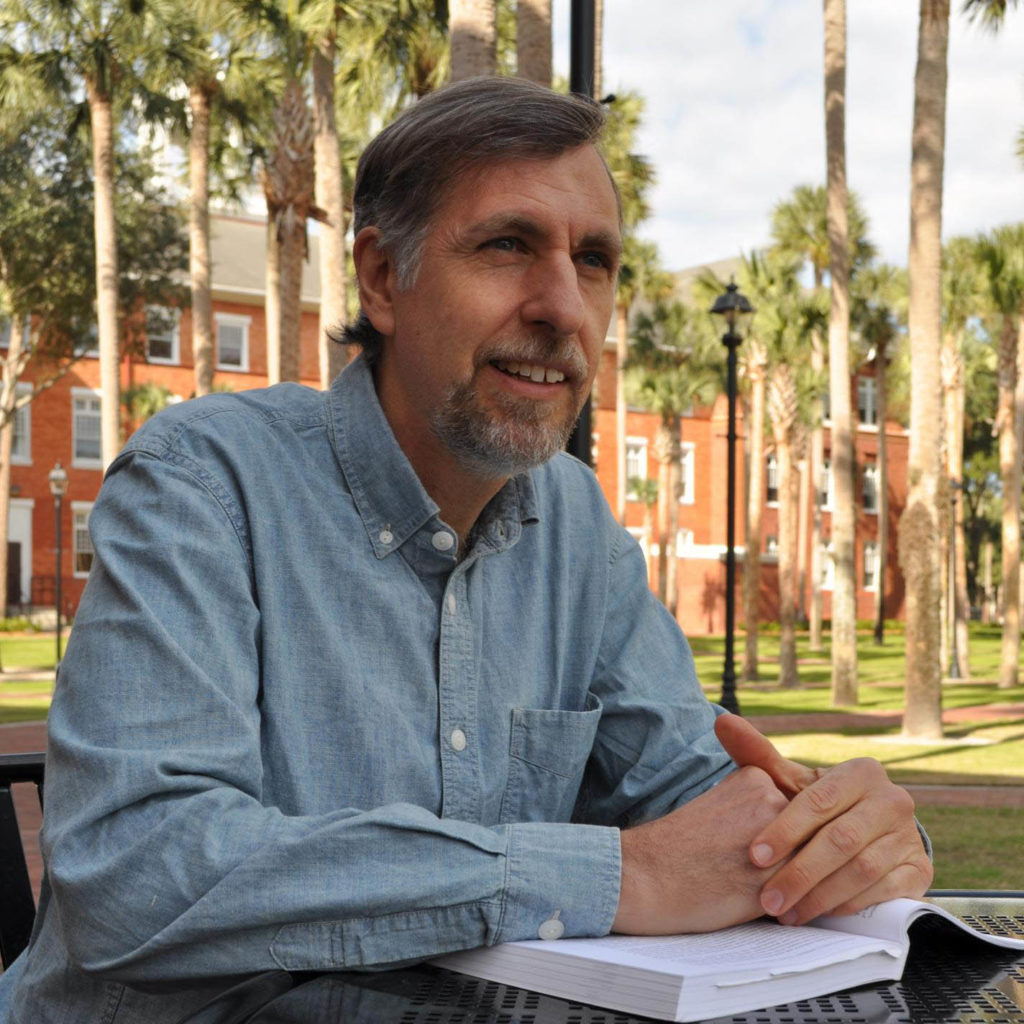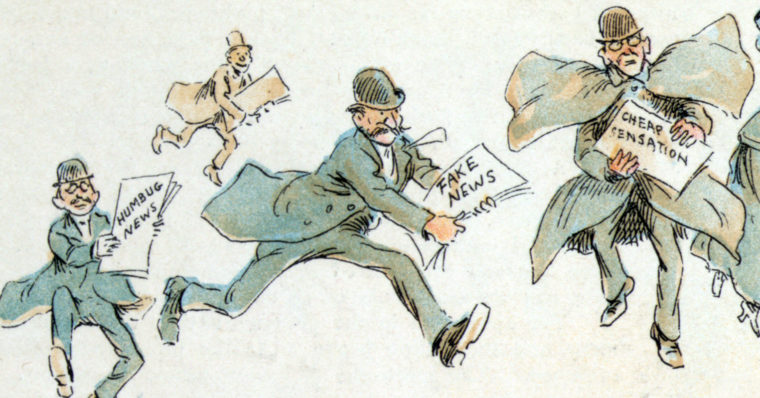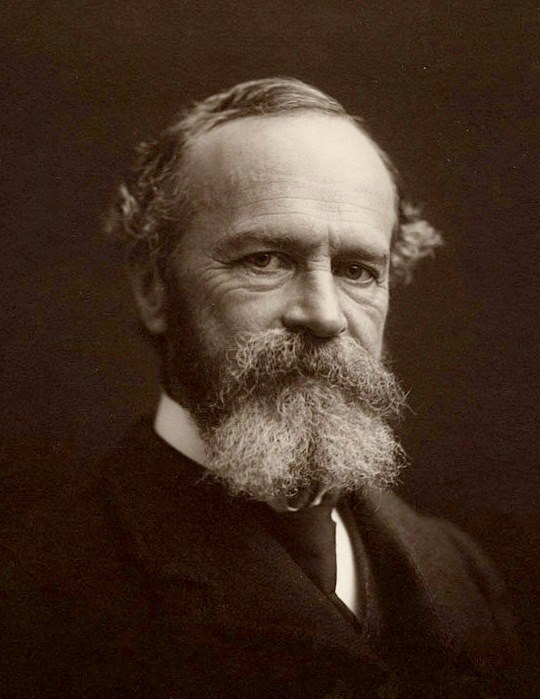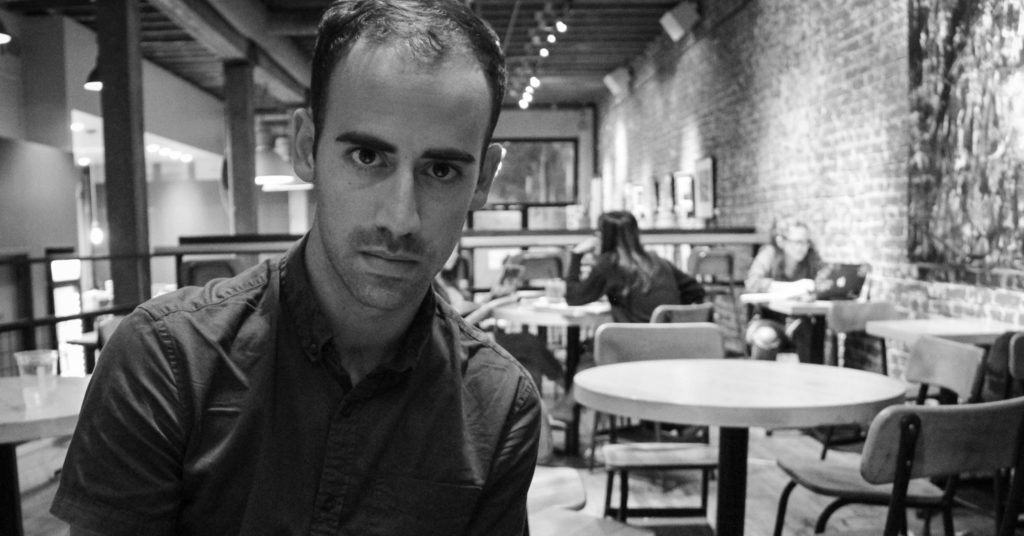| By Paul Croce |
Can academics support the democratic struggle not just to critique fake news, but also to engage the public in the stories that make those false facts appealing?

Intellectual responses surely help identify the really true stories, but the problem of fakery runs deeper because of the way fake stories can seem plausible, at least to segments of the population, as a way to explain what’s happening around them. The political problem with “post-truth” is that, in its tendencies toward exaggerations of the truth, it reinforces already sharp suspicions about contrasting points of view. And it gets worse: people convinced by the fake stories, especially ones with lurid depictions of contrasting positions, tend to believe that the other side should not even get a hearing. At the righteous extreme of these extreme reports, fake news encourages the assumption that one side will simply need to defeat the other.
-
Making a Case for Listening to the Stories that Make Fake News Appealing
Post-truth statements are not hidden in dark corners gaining no attention. The kindred label, “Alt.Truth,” is in wide enough circulation to be the name of a popular Homeland episode. The wide appeal of these distortions, not their merits, makes them an issue. And it is our democratic culture and commitments that makes popular appeal significant. Respect for the voice of the people calls for attempting to understand how stories stripped of truth gain support. That suggests a special role for academics and teachers, as long as they do not get so caught up in their learned ways that they come to believe that they can’t learn anything from the thinking of the average citizen. One of our most intellectual of presidents, Thomas Jefferson, even believed that the tangible experiences of “a ploughman” would foster a better decision on “a moral case” than the abstract reasoning of “a professor.” Even when not learned, citizens can shed light on the lived experience of democracy, and those lessons travel on the wings of stories instead of the highways of scholarship.
In The Death of Expertise, professor of comparative politics Thomas Nichols honors the “specialization and expertise” that have produced the marvels of the modern world, and he laments the squandering of those achievements by the “unfounded arrogance” of citizens with “stubborn ignorance.” Philosopher Zach Biondi has issued a call to action for philosophers to help the public “recognize incompetence and poor argument.” Investigative journalists gamely try to bridge the gap between knowledgeable professionals and citizen indifference about expert insights. The organization Snopes evaluates public statements from True to Mostly False to downright Legends that circulate despite their lack of factual support. These experts do great work and deserve wide support. This approach shows great faith in the power of knowledge, with the tacit assumption that people just need to learn objective facts to correct the appeal of false facts.
Accuracy of facts is surely important, and they can sometimes be persuasive, but the appeal of misinformation persists. American psychologist William James offers helpful insights for addressing this challenge. He formed his thoughts in the late nineteenth century, just as the age of information abundance and expertise was taking on its modern shape. His psychology both helps to explain the appeal of false facts and suggests ways to respond to them. Without understanding the appeal of fakery, the responses won’t get very far. His insights can actually support the goals of the experts and fact checkers.
First, James points to the formative role of selective attention in the establishment of sharply different views. In the vastness of experience, there is not only room for different interpretations of facts, but also for selection of different facts. To make sense of situations, James observes, we select portions of the abundant facts to construct likely stories, which provide guidance within the complexities of experience based on prior assumptions. The most basic elements of false information can generally be corrected rather directly with true information. But the false is often not simple; more complex settings call for deeper inquiry into the sources of those likely stories.
Second, when facing the resulting cacophony of different points of view, James acknowledges the complexity, and suggests the humbling effect that awareness of this range of interpretations can have for coping with this diversity. In reminding that “to no one type … whatsoever is the total fullness of truth … revealed,” his point is not that there is no truth, but that truth is immense and complicated. Even with his awareness of human limitations in the face of the vastness of experience, he firmly critiques those ready to use the elusiveness of truth as a cover for active promotion of untruths. In recognizing the rich complexity of truth, he points to the need for constant inquiry and cooperation among us mere mortals who each have portions of truth in degrees. Attention to the truths of others can even shed light on one’s own truths.
James’s insights about selective attention and the overarching complexity of experience suggest the importance of looking at problems of fabricated news not just as reported (false) information, but also as storytelling, people’s efforts to find meaningful truth in their experiences. Every claim to fact is embedded in a story, which enables that fact to be accepted or not based on the plausibility of the story surrounding it. Awareness of the power of stories is not an endorsement of the sometimes false facts within them, but an acknowledgement of their significance in the human mind, and this awareness can also serve as a resource for addressing their unsavory power. This is especially important when the well-informed voices of experts are not enough to persuade citizens. And this is most especially important in a democracy that values the voice of the people.
-
Learning from People We Disagree With
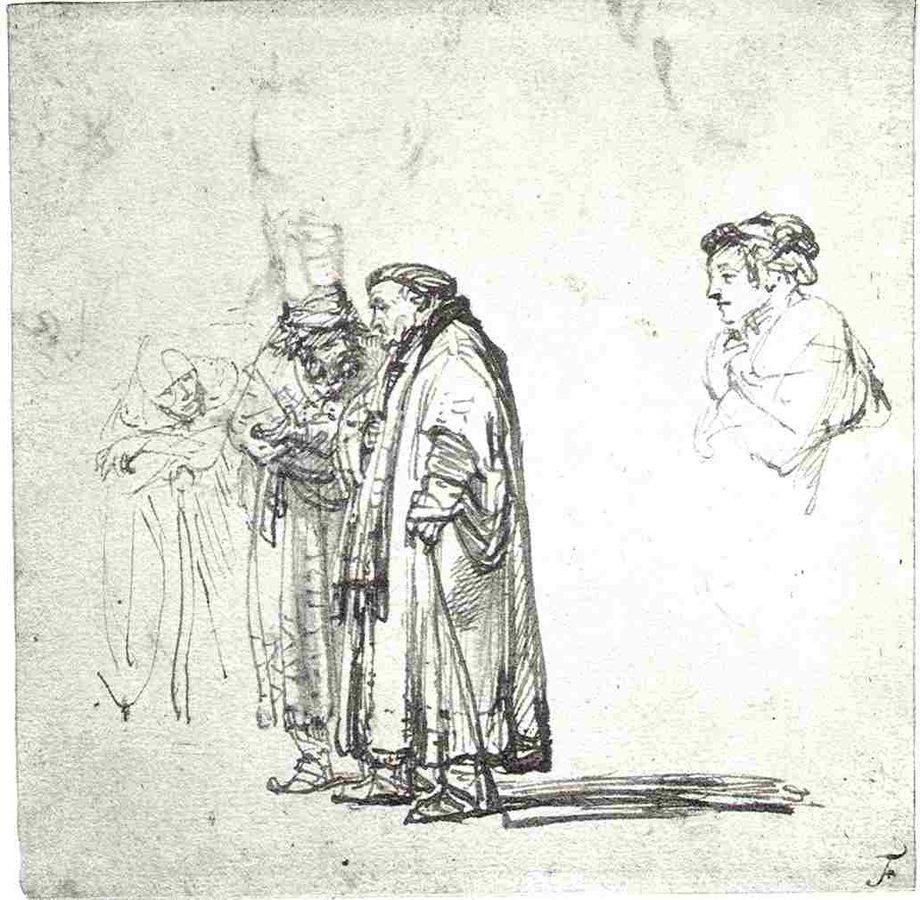
My reviewers both helped me improve the composition of the essay and took issue with my departure from mainstream views. Most helpfully, they pointed out that, despite my intentions, reference to “telling likely stories” can seem like an endorsement of those stories of fakery, or at least a casual disregard for the intellectual and public problems they involve. The first reviewer said, “Your argument does not recognize how problematic ‘alt truth’” is, and urged addressing “the latest [President Donald] Trump nonsense” by pointing out how wrong it is. This helped me to realize that I needed to make clear that understanding fakery is not instead of outrage for its problems, but a step toward undercutting the power and appeal of post-truth talk. For those who have focused only on outrage, until that first step emerged clearly, my argument could be perceived as consorting with the enemy.
My professional reviewers went further, taking issue with the very attempt to address how false information can seem plausible and my depiction of the storytelling roots of the problems of misinformation. Instead, they maintained that the misinformation is simply and literally wrong, by confusion or from deliberate manipulation. Call them out! About one half of the country, from water coolers to talk shows, are taking just this approach to scold the other half. But many people are not listening to the professors’ proposed corrections, except those who already agree. This seems a formula for amplified polarization. Mow down the latest “nonsense,” and more will soon sprout until we address those stories at their roots. Identification of the trends is not a celebration of them, but a blueprint for action against them.
“No way,” declared my second reviewer, who stated firmly that in my openness to hearing out different views, “you appear to deny that there’s any such thing as truth.” It’s fine to care about other people, but “you can’t mix the idea of caring with the road to understanding.” Without adopting “independent standards for truth,” this professor said, my argument “seems magical and hard to take seriously.” This view represents a school of thought that does not reckon with the work of recent psychologists and philosophers who, in the spirit of William James, have emphasized the relationship of caring and other non-rational factors within the process of knowing, including Antonio Damasio, Catherine Elgin, Nel Noddings, and Martha Nussbaum. Without considering these perspectives, my reviewer colleague regarded my James-inspired proposition as a species of relativism. Then, “if all facts are relative, the facts of those we disagree with are at best useless to my own mind, or we are left to surrender to someone else’s facts becoming my facts.” This position would have been familiar to James whose pragmatism mediated objectivist and relativist philosophies, frustrating both sides. And he came to expect scolding from advocates of each, respectively, who called him a roader for the other side.
My reviewer seemed so confident, but I wondered, How would this perspective address the endurance of different points of view? As James’s student Walter Lippmann noted a century ago, “Knowing how unjust other people’s inferences are when they concern us,” can help us to understand how “ours may be unjust to them.” Considering the unprecedented superabundance of information and interpretations now available to so many people, add in the complexity of the world, and now what? The confident assertions of my peer reviewers seemed like a declaration of constant warfare, with the tacit hope that one set of standards will triumph or face “surrender.” This is the conventional wisdom of our time, even as there are variations on the ultimate source of triumph. With enough persuasion, the victory will be intellectual; with enough conversion, the victory will be religious; with enough proof, the victory will be scientific; with sufficient electoral majorities, the victory will be political; with enough force of arms, the victory will be military.
I planned my essay precisely because I don’t see much evidence that these plans for total victory have been working very effectively. Every victory brings a defeat for others; and those others, especially those with views that one side finds appalling, have not been ready to surrender. This has not stopped the insistence that my reviewer colleagues represent, and this insistence comes with great fear as one of them went on to explain: “Without independent standards, no one can be wrong or foolish. If no one is wrong or foolish, society is utterly adrift.” Yet I wondered, who among us in this democracy will remain content when called wrong or foolish? And when called so by a smarter set, aren’t those very people ready to wear that scorn with pride?—and prepare a fighting response.
Bring on more shirts and bumper stickers like the ones saying “I’m a deplorable!” after Hillary Clinton’s painfully quotable critiques of working-class citizens. When these slogans appear—brashly declaring “I’m wrong and foolish!”—the listening and learning will have stopped. In addition, the insistence on standards, planted firmly in the fluid world of political debate, offers an either-or contrast: either standards with certainty or rudderless drift. James suggests a third way. He calls for inquiry in pursuit of truthful directions emerging not by prior absolute plan, but in response to particular concrete experiences.
I read my reviewer comments feeling that I had just gone through a bracing scholarly seminar review of my work. My thoughtful colleagues represent the posture of many academics impatient with the contemporary level of public discourse. Their work has the benefit of encouraging constant intellectual vigilance about public claims to truth. In his call for just this kind of work, Biondi also urges intellectuals to avoid “complacently call[ing] their [surrounding] culture ‘anti-intellectual.’” Beyond avoiding this slur, the next step is to understand how average citizens think. In fact, and ironically, despite their intellectual merits, sophisticated critiques of public understanding, can seem like tit-for-tat responses to the impatience that many average citizens feel for the thinking of intellectuals.
Academics can up their game as contributors to the work of democracy. Other political systems have found effective but cruel ways to deal with distasteful positions or unwelcome people, through imprisoning, banishing, or killing the outliers. In living with the voice of the people, a democracy calls for getting along, even with people holding views that many, for many good reasons, call outrageous. James’s awareness of the role of selective attention in the formation of wildly different views and of the elusive complexities surrounding these and all views, suggests ways to get along without endorsement of any particular position, outlandish or otherwise. And in the openness to different people’s stories that he encourages, we may even learn new layers of truth that had remained out of view when in the comfortable embrace of discoursing with those who share our own perspectives. By letting go of our attempts to seize victory for any one of our positions, when we attempt to see the world through the eyes of others, we may achieve an even larger victory, not for any one position, but for the whole democratic community.
